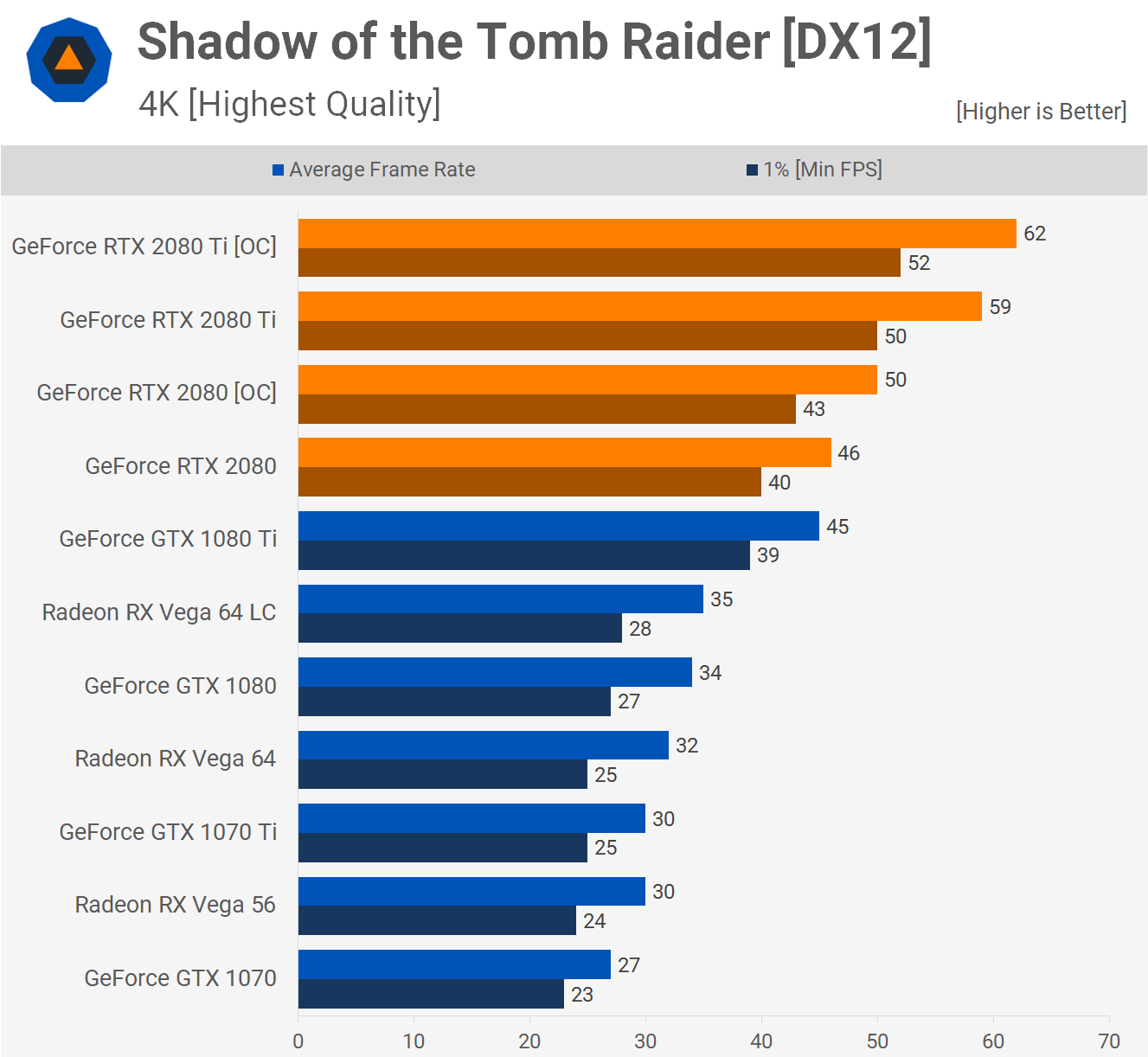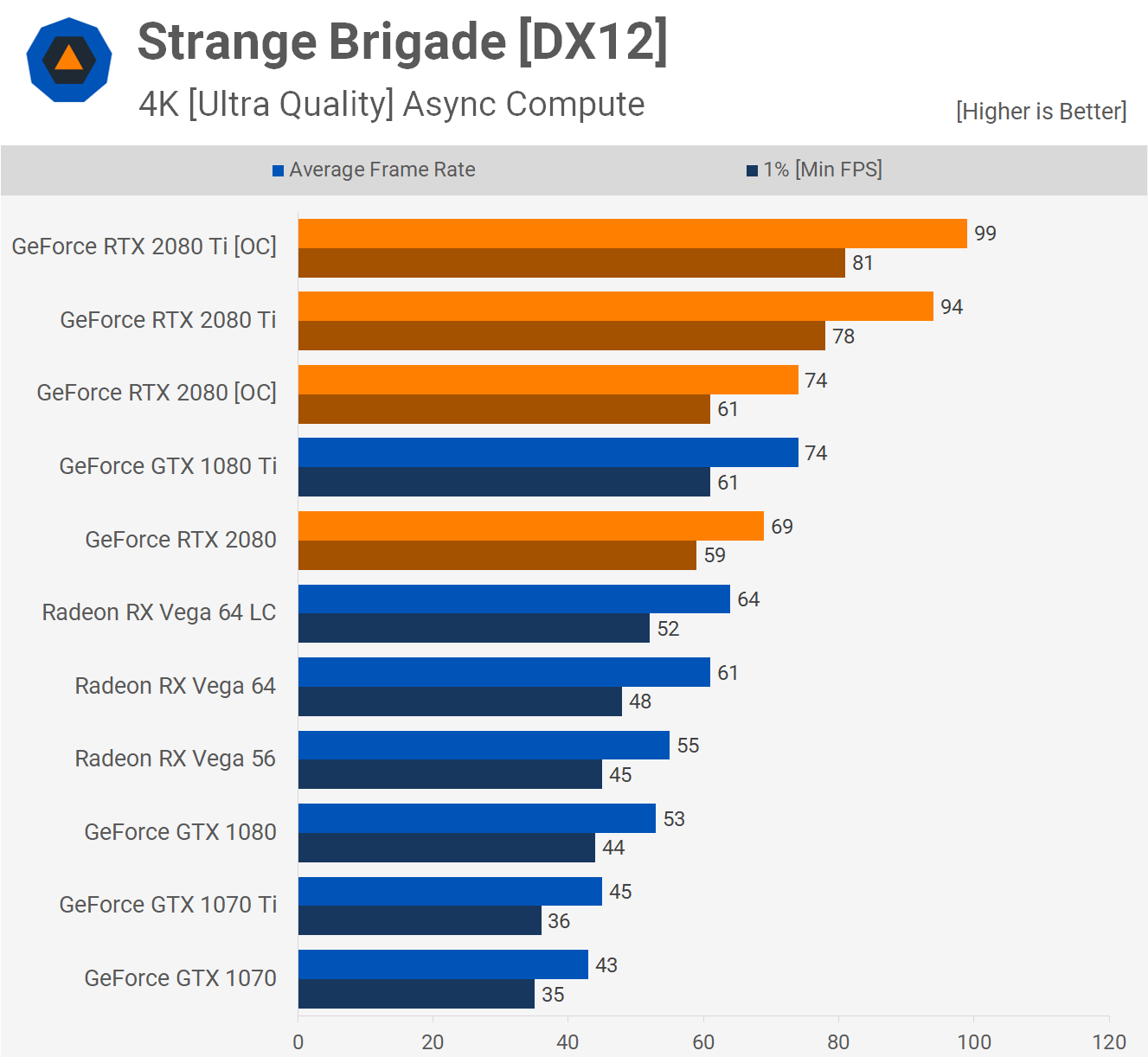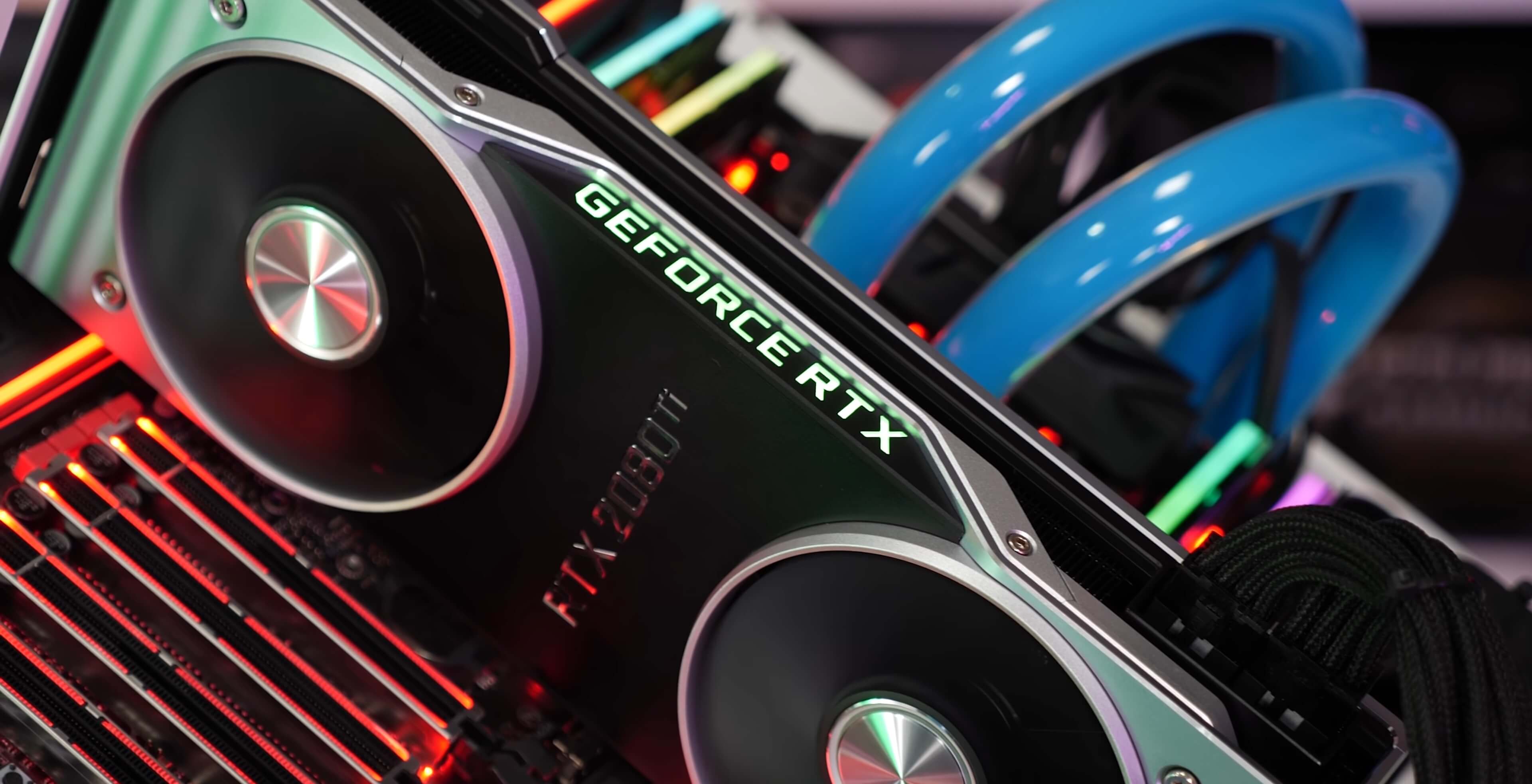Overclocking, Temperature, Power Consumption
Of course, you can make the 2080 Ti a little faster by overclocking it, though as was the case with Pascal they are pretty well tapped out. It was possible to increase the GDDR6 memory by 650 MHz and the core by 190 MHz, this resulted in an average frequency of 1940 MHz when gaming. The vanilla 2080 accepted the same 650 MHz for the memory, but 120 MHz for the core as the cores are clocked higher by default. This resulted in an average core clock of 2150 MHz when gaming.

Ultimately what all this means is that I able to squeeze 9% more frames out of the 2080 and 5% more out of the 2080 Ti when testing with Shadow of the Tomb Raider. Not mind-blowing but it's extra performance.

The 2080 Ti again saw a 5% boost from the overclock, this time when testing with Strange Brigade. Meanwhile the 2080 saw a similar 7% boost to performance. Again not amazing but it's better than a sharp stick in the eye.
Temperature and Clock Speeds
Here's an overview of the 2080 Ti and 2080 Founders Edition graphics cards both stock and overclocked. As you can see operating temperatures only increased by 5 degrees when overclocked and we saw a 6 - 12% increase in fan speed.

I should note that operating volumes for the Founders Edition models were very low, the cards are basically silent when installed in a system, even at 2200 RPM the dual fans can barely be heard. So quality-wise the FE cards are good, but we still don't recommend you buy them given they cost more than the AIB models, and cards from MSI, Asus, Gigabyte and so on are likely to be as good, if not better.
The average operating frequency of the 2080 Ti was increased by 11% and the 2080 by 12%, but of course we've already looked at the resulting performance. The GDDR6 memory also ran at 7650 MHz once overclocked for a throughput of 15.3 Gbps.

Oh and I almost forgot, power consumption, we should probably touch on that. The RTX 2080 Ti is a bit of a power pig, pushing system consumption up towards 500 watts which is Vega 64 Liquid territory. Of course, in terms of efficiency it's worlds better and I think we can accept that kind of consumption given the resulting performance, after all total system consumption was only up 15% from the 1080 Ti.
The RTX 2080 system configuration consumed 24% less power when compared to the 1080 Ti which is a reasonable improvement given it delivers comparable performance.
